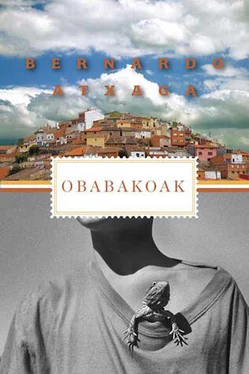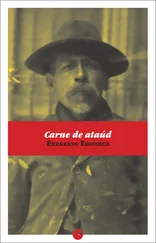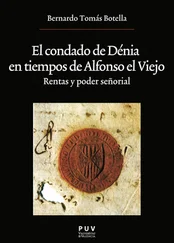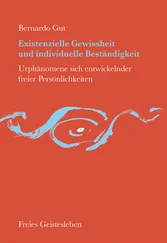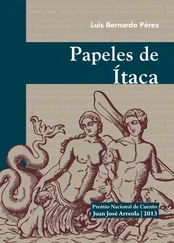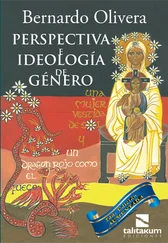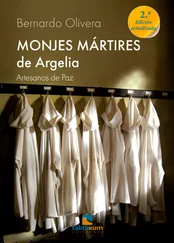Bernardo Atxaga - Obabakoak
Здесь есть возможность читать онлайн «Bernardo Atxaga - Obabakoak» весь текст электронной книги совершенно бесплатно (целиком полную версию без сокращений). В некоторых случаях можно слушать аудио, скачать через торрент в формате fb2 и присутствует краткое содержание. Год выпуска: 2010, Издательство: Graywolf Press, Жанр: Современная проза, на английском языке. Описание произведения, (предисловие) а так же отзывы посетителей доступны на портале библиотеки ЛибКат.
- Название:Obabakoak
- Автор:
- Издательство:Graywolf Press
- Жанр:
- Год:2010
- ISBN:нет данных
- Рейтинг книги:3 / 5. Голосов: 1
-
Избранное:Добавить в избранное
- Отзывы:
-
Ваша оценка:
- 60
- 1
- 2
- 3
- 4
- 5
Obabakoak: краткое содержание, описание и аннотация
Предлагаем к чтению аннотацию, описание, краткое содержание или предисловие (зависит от того, что написал сам автор книги «Obabakoak»). Если вы не нашли необходимую информацию о книге — напишите в комментариях, мы постараемся отыскать её.
Obabakoak
The Observer
Obabakoak — читать онлайн бесплатно полную книгу (весь текст) целиком
Ниже представлен текст книги, разбитый по страницам. Система сохранения места последней прочитанной страницы, позволяет с удобством читать онлайн бесплатно книгу «Obabakoak», без необходимости каждый раз заново искать на чём Вы остановились. Поставьте закладку, и сможете в любой момент перейти на страницу, на которой закончили чтение.
Интервал:
Закладка:
“I’ve said nothing that isn’t true. You’re neither misshapen nor ugly. You’re very small but perfectly well-proportioned,” I said.
“I know all too well what I look like,” he said, tight-lipped.
“What do you think you look like then?”
“I’m monstrous. That’s the only word for me. All the rest is nonsense, a waste of breath.”
I’ve never quite known what to make of people who speak scornfully of themselves and their lives. But, in general, I feel such harshness is unjustified. I’ve often noticed that the harshest people only soften when it comes to judging the actions of the very life they claim to despise; and that then — feeling, of course, even more despicable — they tend to turn their weapons on the person nearest them rather than on themselves.
Even if Tassis believed what he said, his manner of speaking didn’t impress me. All that occurred to me was what an excellent personnel officer he’d have made.
Nevertheless, the rules governing our relationship were established according to his wishes. My “initial blunder” dictated that he would play the role of teacher and I of pupil. He would speak and I would listen. Somehow I had to be made to pay for that terrible act of compassion.
And, like good Jesuits, we both accepted the rules of the game.
“People like myself were a real headache to the wise men of past centuries,” Tassis continued, as we walked through the spot known as Valdesalce. “According to them the world and everything in it were in God’s mind from the very beginning, everything was preordained and indeed had already happened before creation. And the past, as well as the present and the future, were no more than a secretion from the mind of God. But what happened? Monsters like myself emerged. And then the wise men asked in amazement…”
He was getting himself worked up, as he had when he recited the poem by Góngora, and he paused to take a breath. His doll-like face, however, still bore that look of scorn. It occurred to me that his facial muscles perhaps lacked elasticity and that once they were set in a particular expression or grimace, it might be difficult for them to relax into a normal pose.
“They asked… but if absolutely everything was in God’s mind right from the very beginning, what could he possibly want with monsters, invalids, paralytics? Is He not Good, infinitely Good?”
By this point Tassis was doubled up with laughter.
Even in my role as good pupil, I wasn’t prepared to witness another scene like that of the first day and I suggested we continue our walk.
He agreed, but went on talking. He explained to me that in earlier ages it was thought that people like him had no soul, that they were not even considered to be human, that all manner of abuses were therefore permitted against them.
“It must have suited them to think that,” I said, interrupting. “When the Spanish went to America and set about laying waste to everything in sight, the Court philosophers decided that the Indians weren’t human either and reached that conclusion, mind you, basing themselves on the writings of Aristotle and others. They claimed the Indians were animals and that killing them was not therefore a sin. Have you ever seen the film Blade Runner ?” I added.
“I don’t care for the cinema,” he replied stiffly.
“I respect your right not to like it but I see no reason to be so proud about it. Only mediocrities take pride in their dislikes,” I said, momentarily stepping out of my role as pupil.
“Touché!” he said, laughing, and staggered about among the trees pretending to be wounded. Then he said: “What about this film Blade Runner then?”
“Well, it deals with a similar problem, with the question of what is a man and who is endowed with human nature and who is not. I mean, the problem could arise again. In the year 2200 a schoolchild might ask: Is it all right to kill a robot? and the answer won’t be that easy.”
“The teacher will just say: No, you can’t kill a robot because they’re too expensive,” commented Tassis and this time we both laughed long and loud.
That first outing became the model for all our subsequent ones and not only as regards the role each of us would take in the conversation or its unerringly intellectual, impersonal tone. Each outing was identical in form, length, and route.
Each Friday we would walk for two hours, from seven in the evening until nine. We’d head off away from the plain — this part of the walk we did separately — and having climbed the plateau to our right would then meet up by the forest, beneath the first oak tree. There Tassis would explain the etymology of some word or other, just as he had that first day, and, taking that subject as our starting point, we would walk along the little valleys — Valdesalce, Valderrobledo, Valdencina — that extended into the forest until, almost without realizing it, we’d reach the plateau on the left-hand side, or rather the intersection of the two plateaus, at the top of the streambed. We would sit there for a while and then follow the path home, in silence, each one thinking his own thoughts, but this time paying more attention to the landscape.
During that walk, which was repeated seven times, we touched on many topics, though I can’t remember them all. Most, however, revealed to me a Tassis who seemed far more uncertain than he had on that first occasion, though no less talkative and arrogant. I would compare what he told me with what Daniel or Julián or Benito said and on the whole their thoughts seemed more valuable.
However, what he said to me on our seventh and last walk together was different. On that occasion what Tassis said really touched me and not just because it proved to be our final walk. That day I learned many things about him.
We were sitting at the intersection of the two plateaus, with the village below us and beyond that the plain.
“What do you think,” I asked, “does Villamediana have a river or doesn’t it?”
“No, it doesn’t.”
“Well, the people in the village can’t agree about it. Some say that, though it lacks water, there is a river with a valley, a streambed, and banks as well as bridges.”
“Bridges? Where?” He studied the streambed with his blue gray eyes and I realized that he’d never ventured any farther than the local shop owned by a pale woman called Rosi, that he’d never been beyond the place where he did his shopping. Because the bridges (two bridges to be exact) were in the square itself.
“Between Rosi’s shop and the shepherds’ huts,” I lied, hoping to confirm my suspicions.
“Ah, yes. Now I remember,” he replied.
I realized he was afraid to risk other people’s mockery. I realized too how terrible it must be to wake up, possibly from a happy dream, only to find that one’s deformity is still there. I realized then that dawn must be the cruelest time for all those who suffer.
“The people in the village also say that, once, this river even flooded,” I said, in an attempt to dispel the thoughts going around and around in my head.
Shortly before, in an old program for the village fiesta some years before, I’d read about a flood that apparently happened at the beginning of the century and it seemed peculiarly appropriate to mention to him the strange story recounted there. The author of the program said that, during the flood, some local people had seen a white horse ridden by a man dressed in red and that the rider kept thrashing at the waters with his whip to drive them back. But he didn’t know if that had really happened or if it was just the imaginings of a terrified populace. What most intrigued me about the story was its exactitude. It was such an archetype, it could have been an entry in a dictionary of symbols. As I remarked to Tassis, the part about the rider thrashing at the waters, for example, corresponded to the so-called Xerxes complex, because that was exactly what Xerxes had done. To say nothing of the rider all in red or the white horse. There was a mass of literature about what they represented.
Читать дальшеИнтервал:
Закладка:
Похожие книги на «Obabakoak»
Представляем Вашему вниманию похожие книги на «Obabakoak» списком для выбора. Мы отобрали схожую по названию и смыслу литературу в надежде предоставить читателям больше вариантов отыскать новые, интересные, ещё непрочитанные произведения.
Обсуждение, отзывы о книге «Obabakoak» и просто собственные мнения читателей. Оставьте ваши комментарии, напишите, что Вы думаете о произведении, его смысле или главных героях. Укажите что конкретно понравилось, а что нет, и почему Вы так считаете.
